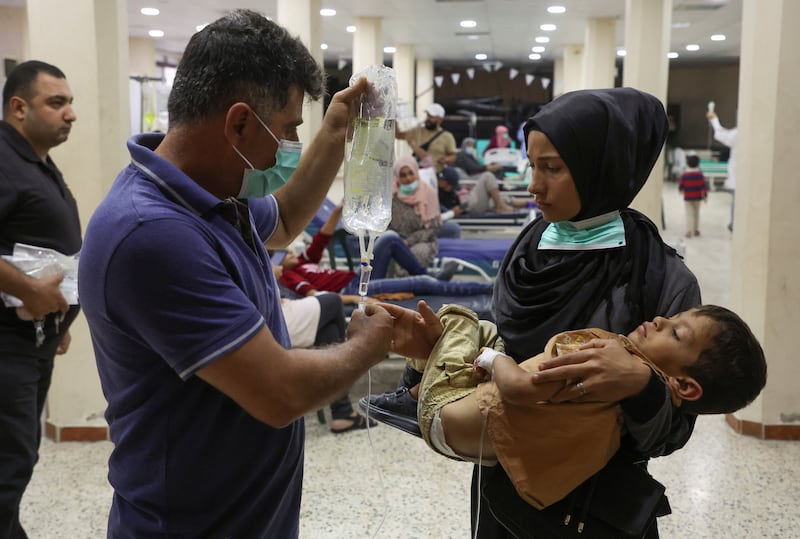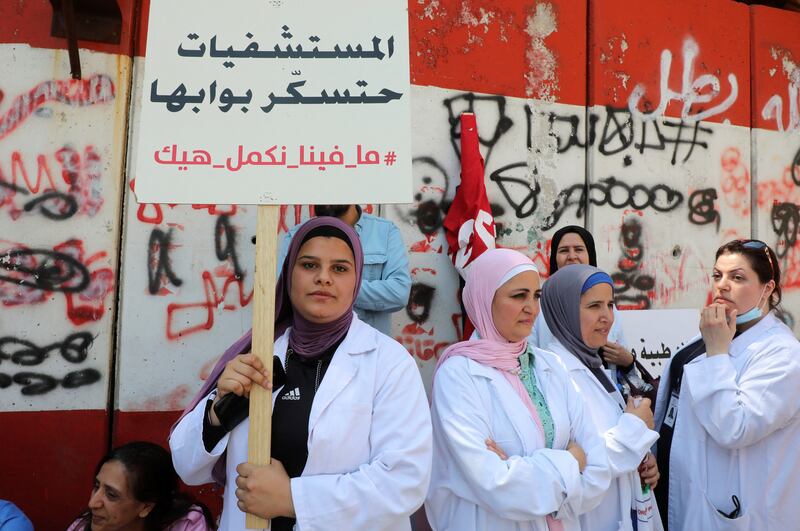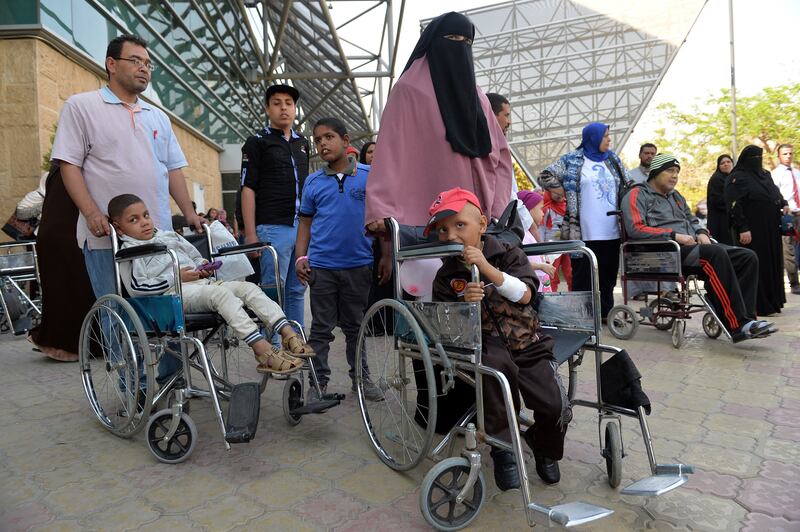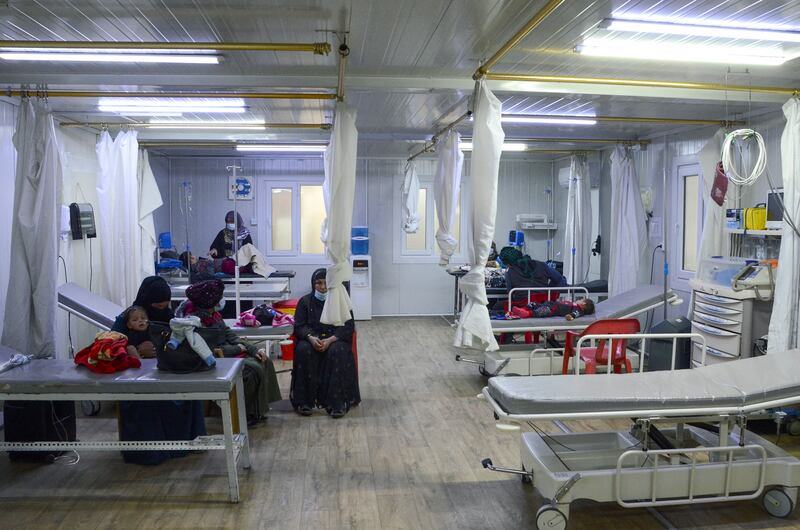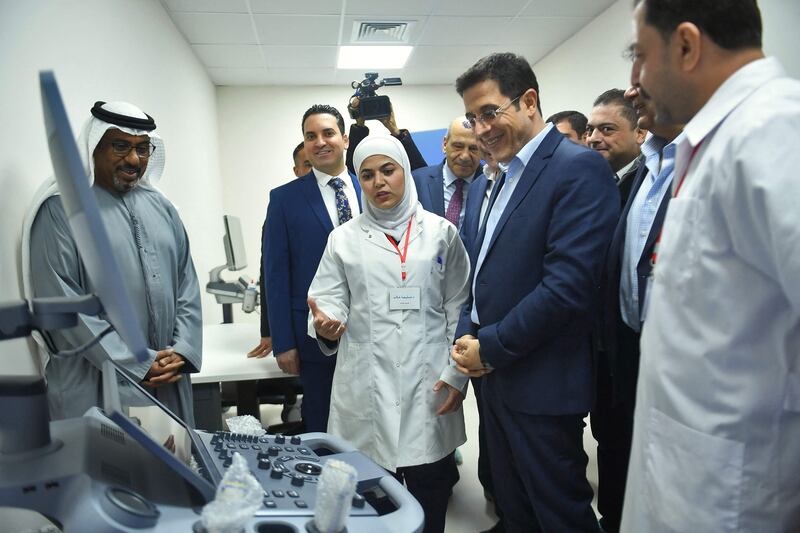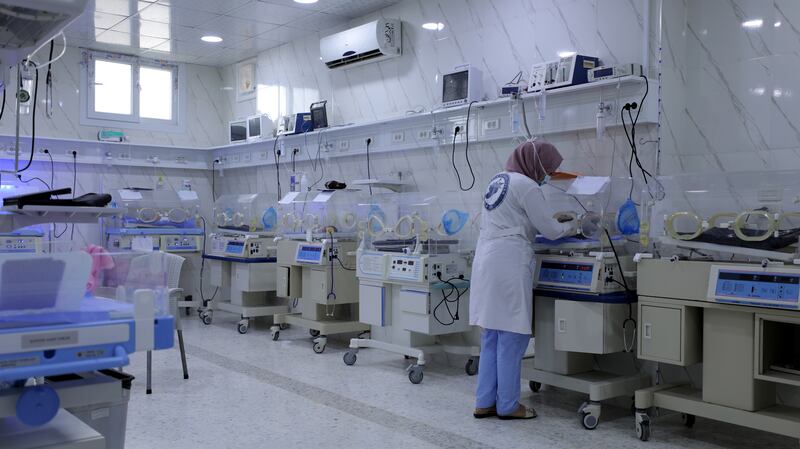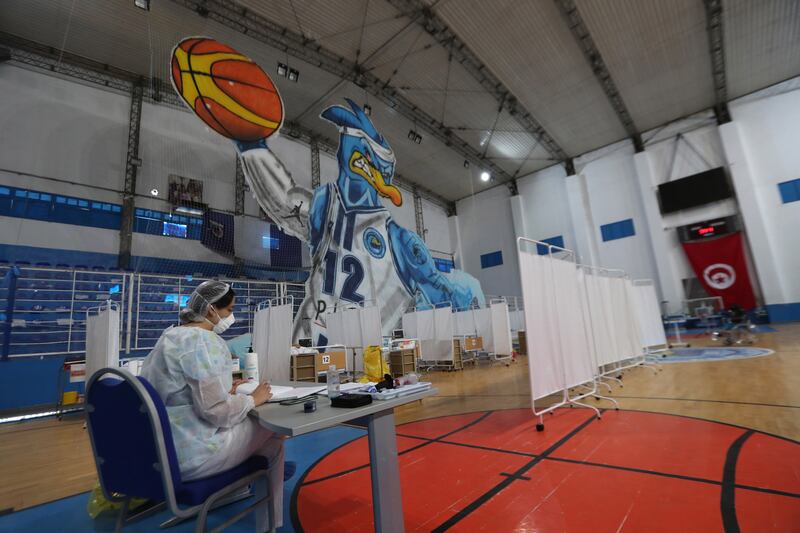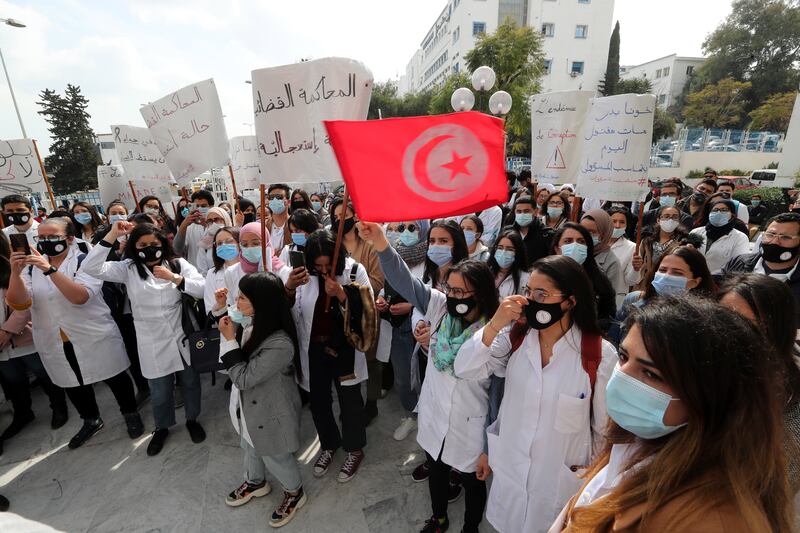The Covid-19 pandemic, continuing conflicts and climate change have set back healthcare access and affordability in the Eastern Mediterranean region, World Health Organisation officials said on the eve of Universal Health Coverage Day.
December 12 marks the anniversary of the 2015 decision by UN member states to endorse universal health coverage under the 2030 sustainable development goals.
Universal health coverage means that all individuals and communities receive the health services they need without suffering financial hardship.
“Health is a fundamental human right and it is everyone’s responsibility,” Dr Ahmed Al Mandhari, WHO regional director for the Eastern Mediterranean said in Cairo on Sunday.
The Eastern Mediterranean, one of six WHO global regions, includes 22 countries and territories stretching from Morocco to Pakistan, with a combined population of about 720 million people.
“Half of all countries in our region are experiencing protracted conflicts and humanitarian crises. Eight of them have reported outbreaks of cholera and acute watery diarrhoea. Extreme climate events like the floods in Pakistan and drought in the Horn of Africa are leading to acute hunger and health crises,” Dr Al Mandhari said.
Syria and Lebanon are currently in the grip of a cholera outbreak, which has been blamed on crumbling and war-damaged sewage treatment infrastructure in Syria.
Dr Al Mandhari's main message was to invest in universal health coverage urgently to avoid added financial burdens and public health catastrophes.
“If it costs us $100 now, next year or in two years it will cost us $100,000,” he said.
The WHO Eastern Mediterranean office is holding five days of meetings on primary health care for universal health coverage and health security in the region in Cairo this week, bringing together more than 100 stakeholders from government, the private sector, donors, academia and the health sector.
They will address regional priorities, such as strengthening health emergency and disaster risk management, building public health institutions, enhancing the health workforce, improving access to medicines and vaccines, and promoting equity.
The latest report on universal health coverage issued in Dubai in December 2021 shows one in eight people in the region faces financial hardship, spending more than 10 per cent of their resources to access health care.
“This is unacceptable in the 21st century, unacceptable if we believe that health is a right,” said Dr Awad Mataria, director of universal health coverage and health systems at WHO Eastern Mediterranean.
The WHO rates healthcare access in different countries on a scale of one to 100, calculated using an index of 14 different factors. The regional average for health service coverage is 57, while the global average is 68.
“We are at the midpoint … meaning that, if we are serious about universal health coverage and we want to achieve the 100 point on that scale, we need really to expedite and to intensify our efforts to enhance the access to services,” said Dr Mataria.
While the region represents 9 per cent of the world’s population, it is spending less than 2 per cent of what the world is spending on health, he said.
The Covid-19 pandemic has presented an added challenge, but also an opportunity to invest more in health.
“What we have learnt from the Covid-19 pandemic, is equity cannot wait,” said Dr Suraya Dalil, director of the WHO Special Programme on Primary Health Care.
Post Covid recovery
Dr Dalil emphasised primary health care as the necessary foundation to be able to address health emergencies.
“As we are coming out of Covid-19, 19 ministries of health are really looking into what the lessons from Covid-19 are and how to orient health systems at crisis time, as well as at peace time,” she said.
An analysis from WHO found that global Covid spending on health reached $9 trillion in 2020, of which $5.7 trillion came from governments.
Although WHO chief Tedros Adhanom Ghebreyesus said in September that the end of the Covid-19 pandemic was in sight, health workers are still fighting the disease in an exhausted health system.
The number of new weekly cases globally remained stable during the week of November 28 to December 4, compared to the previous week, with just less than 3 million new cases reported.
Cholera, an acute diarrhoea disease that can kill within hours if left untreated, is “evidence of the fragility and weaknesses of health systems” in the region, said Dr Rana Hajjeh, director of programme management at WHO Eastern Mediterranean.
Globally, 29 countries are grappling with cholera outbreaks, including eight in the region: Lebanon, Syria, Pakistan, Somalia, Iraq, Yemen, Afghanistan and Iran.
Monkeypox has been limited in the region, with 78 cases in 10 countries, but is another example of why “we need to have health systems that are very strong and resilient … to face these endemics and be able to respond to them at an early stage”, Dr Hajjeh said.
Dr Al Mandhari noted positive examples, such as Egypt's “100 Million Seha”, or 100 Million Healthy Lives, initiative, which has succeeded in eliminating Hepatitis C virus from the country.
“Time is running too fast” to reach the development goals for 2030, Dr Al Mandhari said. “Unless we seize the moment this will be a lost opportunity.”
